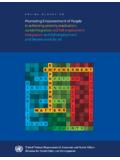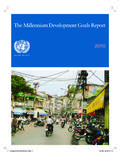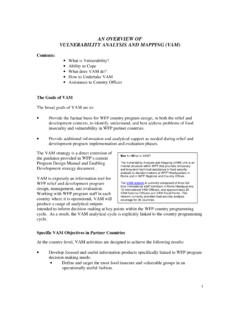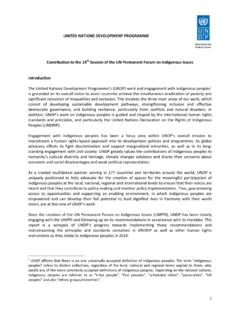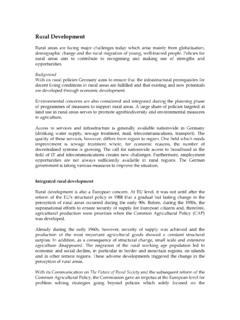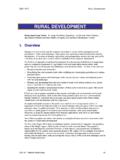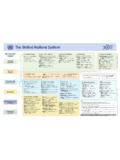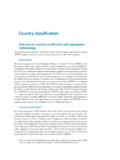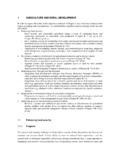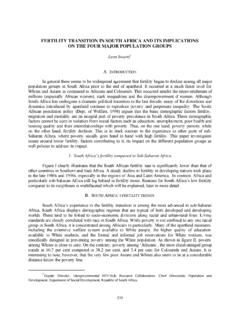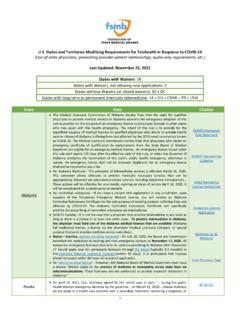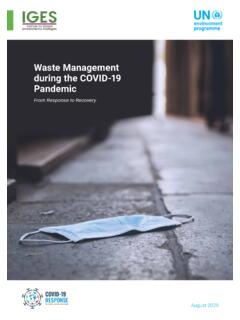Transcription of A UN framework for the immediate socio-economic …
1 A UN framework for the immediate socio - economic response to COVID-19 APRIL 2020A UN FR AMEWORK FOR THE immediate socio - economic response TO COVID-19 iii EXECUTIVE INTRODUCTION ..3II. THE PEOPLE WE MUST REACH ..5 III. THE UNITED NATIONS OFFER FOR AN immediate DEVELOPMENT response ..8I V. DELIVERING socio - economic SUPPORT UNDER EMERGENCY CONDITIONS ..10IV. 1. Health First: Protecting Health Services and Systems during the Crisis ..11IV. 2. Protecting People: Social Protection and Basic Services ..13IV. 3. economic response and Recovery: Protecting Jobs, Small and Medium-Sized Enterprises, and Informal Sector Workers.
2 17IV. 4. Macroeconomic response and Multilateral Collaboration ..22IV. 5. Social Cohesion and Community Resilience ..27V. HOW WE WILL DELIVER THE response ..32VI. BUILDING BACK BETTER - TOWARDS SUSTAINABLE DEVELOPMENT AND THE 2030 AGENDA ..38 ANNEX 1: 10 KEY INDICATORS FOR MONITORING HUMAN RIGHTS IMPLICATIONS OF COVID-19 ..41 ANNE X 2: UN DEVELOPMENT SYSTEM ASSETS FOR COVID-19 response ..47 Table of Contents1 A UN FR AMEWORK FOR THE immediate socio - economic response TO COVID-19 This report sets out the framework for the United Nations urgent socio - economic support to countries and societies in the face of COVID-19, putting in practice the UN Secretary-General s Shared Responsibility, Global Solidarity report on the same subject.
3 It is one of three critical components of the UN s efforts to save lives, protect people, and rebuild better, alongside the health response , led by the World Health Organization (WHO), and the humanitarian response , as detailed in the UN-led COVID-19 Global Humanitarian response the Ebola outbreak in West Africa in 2014, more people died from the interruption of social services and economic breakdown than from the virus itself. This should not have happened, and the world cannot let it happen again. As the world enters the deepest global recession since the Great Depression, we need to connect health needs to social, economic and environmental well-being, linking the present to the are all interconnected and need border-less solidarity.
4 People everywhere must have access to social services and social protection; jobs, businesses and livelihoods must be pro-tected; and a safe and equitable recovery of societies and economies must be set in motion as soon as possible, with the long-term goal of directing economies along a sustainable, gender-equal, and carbon-neutral trajectory. Failure to do so will multiply and prolong suffer-ing amongst the world s most vulnerable socio - economic response framework con-sists of five streams of work an integrated support package offered by the United Nations Development System (UNDS) to protect the needs and rights of people living under the duress of the pandemic, with particular focus on the most vulnerable countries, groups, and people who risk being left behind.
5 The five streams of work that constitute this package include: 1. ensuring that essential health services are still available and protecting health systems; 2. helping people cope with adversity, through social protection and basic services; 3. protecting jobs, supporting small and medium-sized enterprises, and informal sector workers through economic response and recovery programmes; 4. guiding the necessary surge in fiscal and financial stim-ulus to make macroeconomic policies work for the most vulnerable and strengthening multilateral and regional responses; and 5. promoting social cohesion and investing in community-led resilience and response sys-tems.
6 These five streams are connected by a strong environmental sustainability and gen-der equality imperative to build back SummaryA UN FR AMEWORK FOR THE immediate socio - economic response TO COVID-19 2 To support Member States on this response , the UNDS is switching to emergency mode. A significant proportion of the UN s exist-ing US$ billion portfolio of sustainable development programmes across all the Sustainable Development Goals (SDGs) will be adjusted and expanded towards COVID-19 related needs. Repurposing and repro-gramming efforts have already started, in close collaboration with programme coun-tries, donors and partners, without losing sight of the promise of the 2030 the scale and scope of the socio -eco-nomic impact of COVID-19, additional resources nevertheless will be required.
7 Investments in these five streams of work, complementing the UN s health and humanitarian response , are investments in resilience and in the recogni-tion embodied in the Sustainable Development Goals (SDGs) that all life on this planet is inter-connected. This socio - economic package of support recognizes that the response to this pandemic must accelerate rather than under-mine decarbonization, protect the natural capital, build resilient cities, and ensure social equality, inclusion, and the realization of human rights for everyone, the rule of law and account-able, capable governments and institutions. The heart of the response lies at the national and sub-national level, using existing struc-tures.
8 The collective know-how of the United Nations 131 Country Teams serving 162 countries and territories is being mobilized to implement this framework over the next 12 to 18 months. This is undertaken under the leadership of the UN Resident Coordinators, with support from UNDP as technical lead, drawing from a network of global and regional expertise and the UN Country Teams working as one across all facets of the response . Let s not forget this is essentially a human crisis. Most fundamentally, we need to focus on people the most vulnerable. UN Secretary-General s Call for Solidarity3 A UN FR AMEWORK FOR THE immediate socio - economic response TO COVID-19 The COVID-19 pandemic is far more than a health crisis: it is affecting societies and econ-omies at their core.
9 While the impact of the pandemic will vary from country to country, it will most likely increase poverty and inequalities at a global scale, making achievement of SDGs even more urgent. Without urgent socio -eco-nomic responses, global suffering will escalate, jeopardizing lives and livelihoods for years to come. immediate development responses in this crisis must be undertaken with an eye to the future. Development trajectories in the long-term will be affected by the choices coun-tries make now and the support they receive. This global framework provides the strategy and blueprint for the urgent socio - economic response , following the Secretary-General s report on the socio - economic impacts of the COVID-19 crisis.
10 The focus is on the here and now at country level. Its timeframe is 12 to 18 months as an immediate development offer, to be implemented by UN Country Teams, and complementing the humanitarian response in countries where relevant and the World Health Organization (WHO)-sponsored Global Strategic Preparedness and response Plan focused on the direct health response . The 2030 Agenda must be preserved, and the SDGs must be reached. As the Secretary-General has highlighted, it is in fact development deficits, failures in achieving the Millennium Development Goals (MDGs) and delays in our SDG trajectories that have made so many countries across every continent so vulnerable to this crisis.
